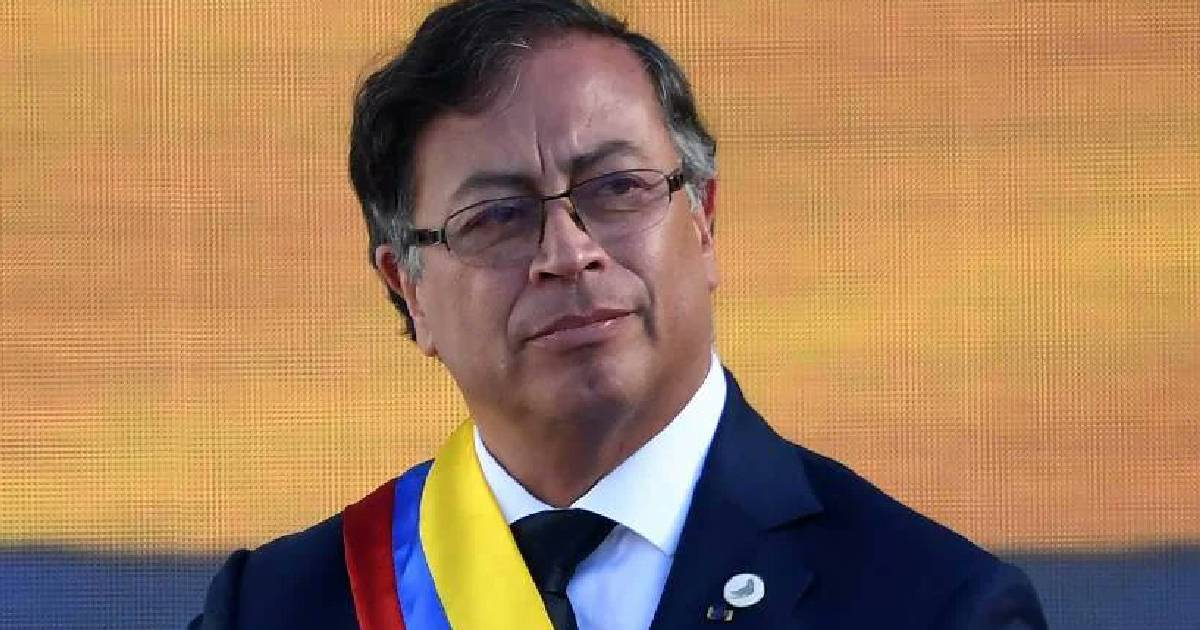Colombian President Gustavo Petro made a significant announcement on Sunday, declaring his decision to prohibit the entry of U.S. military aircraft transporting deported Colombian migrants. This move, as explained by Petro, is a response to various irregularities observed in the repatriation procedures conducted by the U.S. government.
In a statement shared via his social media channels, Petro emphasized that "the U.S. cannot treat Colombian migrants as criminals," questioning the conditions under which Colombian citizens are being deported. He further stressed that these actions have not been coordinated with Colombian authorities beforehand. "The U.S. must establish a protocol that ensures the dignified treatment of migrants before we accept them," he asserted.
Petro also stated that he would not permit deported individuals to be transported on military aircraft, insisting instead on the use of civilian planes and a humane treatment that respects both the individuals and Colombia's sovereignty. "A migrant is not a criminal and should be treated with the dignity a human being deserves. That is why I ordered the return of U.S. military planes carrying Colombian migrants. I cannot stop migrants from being in a country that doesn't want them; however, if that country returns them, it should be with dignity and respect for them and our country. We will receive our citizens on civilian planes, without treating them as criminals. Colombia deserves respect," he wrote.
This decision comes amidst the implementation of stricter immigration policies following Donald Trump's return to the U.S. presidency. Since taking office, the Trump administration has escalated mass deportations of undocumented immigrants, including Colombians. Reports indicate arrests in major cities like Chicago, particularly targeting individuals with criminal records. Additionally, the Trump administration has eliminated tools such as the CBP One app, which was used to manage immigration appointments.
In response to Colombia's stance, the U.S. Department of State announced an indefinite suspension of visa issuance at its embassy in Bogotá, impacting thousands of Colombians seeking to travel to the United States. Petro's decision aligns with a similar action by the Mexican government, which denied a U.S. request to allow a military plane intended for migrant deportations to land on Mexican soil.
According to reports, while two similar flights carrying approximately 80 migrants each were sent to Guatemala, Mexico refused a C-17 transport plane permission to conduct a similar operation on its territory. Mexico's Foreign Affairs Ministry stated that the country would always welcome its repatriated citizens "with open arms," without providing specific details on the denial of the military plane's landing.
This development occurs against a backdrop of diplomatic tensions between Mexico and the United States, especially after the Trump administration reinstated the "Remain in Mexico" program, which requires non-Mexican asylum seekers to wait in Mexico while their cases are processed in the U.S. Mexican President Claudia Sheinbaum has voiced opposition to mass deportations and emphasized that any migration-related measures should result from bilateral agreements and respect Mexico's sovereignty.
These incidents highlight the complexities and challenges in the migration relationship between the United States and Latin America, underscoring the need for cooperation grounded in mutual respect and the dignity of migrants.
Understanding the Repatriation Controversy
Why did Gustavo Petro prohibit U.S. military planes from entering Colombia?
Gustavo Petro prohibited the entry of U.S. military planes because of irregularities in the repatriation process and the lack of coordination with Colombian authorities. He emphasized the need for dignified treatment of Colombian migrants.
How has the Trump administration's immigration policy affected Colombian migrants?
The Trump administration has intensified mass deportations of undocumented immigrants, including Colombians, and has removed tools like the CBP One app, making the immigration process more challenging.
What impact does the U.S. visa suspension have on Colombians?
The suspension of visa issuance at the U.S. embassy in Bogotá affects thousands of Colombians who wish to travel to the United States, complicating their travel plans and legal processes.
